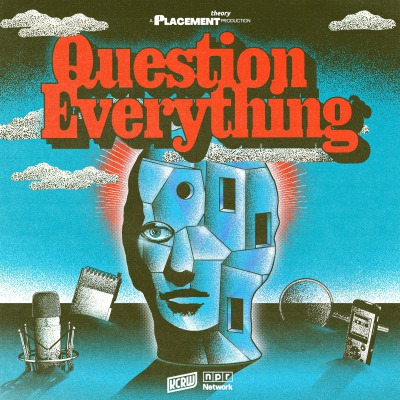'S-Town's' Brian Reed Back With New Podcast Putting Journalists On The Hot Seat
Brian Reed, the mind and voice behind the wildly popular podcast S-Town, the offshoot of the podcast that changed all podcasts, Serial. It followed Reed's investigation into an alleged murder that was brought to his attention by a man named John. By the time it was all said and done, the show, short for Shit Town (the name John had given to his home), was about John, in all his complicated, captivating, bizarre, brilliant glory.
But John killed himself. It was a shock to Reed, who'd grown fond of the man, and that was when the decision to focus the show on John—after his death.
Which raised some thorny ethical questions, namely, "Should this story have been told at all?"

Whether that was the impetus for Reed's new show, Question Everything, or just a handy first episode, it made for great listening. Question Everything is, Reed says, an effort do just that—but in the realm of journalism. It's supposed to shine light on the process, to question how and why decisions in reporting and storytelling get made, and if they live up to lofty goals of journalism as such a cherished democratic institution.
In this first episode, Reed subjects himself to a thorough grilling by a journalist he'd dodged when the show came out. Australian journalist Gay Alcorn called S-Town "morally indefensible," and she was his first guest. She was unsparing in her questions (though her tone belied a sympathy with the position Reed had been in and her underlying trust that he was not, in any way, a bad person for having done the series), and there's something so pure and honest about Reed's sometimes rambling, often uncomfortable answers.
They are hard questions. There are things he wished he'd done better (or not at all), but you can tell he's still quite proud of the work he made (as he should be; it's an incredible feat of storytelling).
But it clearly brings to mind Janet Malcolm's famous quote that began The Journalist and The Murderer:
Every journalist who is not too stupid or too full of himself to notice what is going on knows that what he does is morally indefensible. He is a kind of confidence man, preying on people’s vanity, ignorance, or loneliness, gaining their trust and betraying them without remorse.
Every episode and every question asked in the new podcast won't likely be "Is this morally defensible?" but it's a worthwhile project to ask all sorts of questions that plague journalists but rarely get answered publicly.
I, for one, can't wait.

Comments